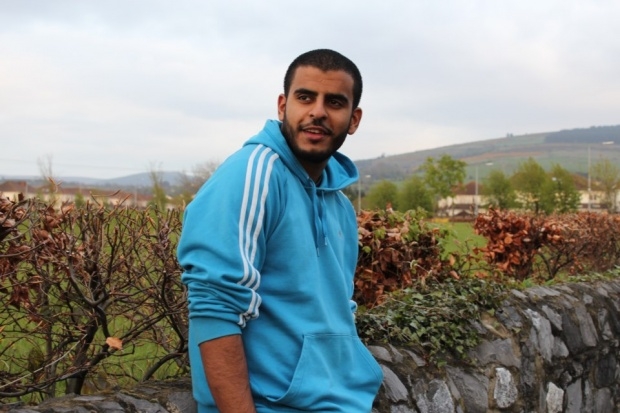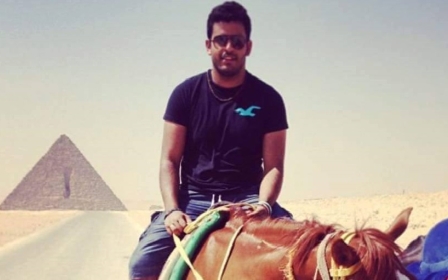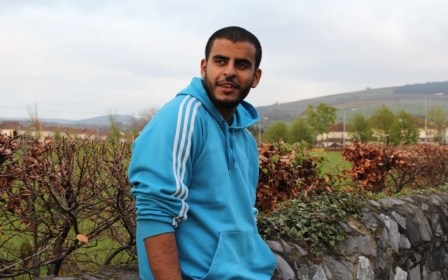UK lawyers call on Egypt to release tortured Irish student

A group of campaigning British barristers has called on Egypt to release an Irish-Egyptian student facing the death penalty, calling his three years of pre-trial imprisonment a "serious breach of international law".
The Bar Human Rights Committee on Wednesday called for “the immediate transfer” of 20-year old Ibrahim Halawa to his home country, Ireland, and said his treatment has violated several international tenets, including the right to trial without delay, the right to fair treatment and the right to representation.
Ibrahim, a student from Dublin, was rounded up aged 17 with hundreds of people three years ago today in Cairo, as the Egyptian army broke up protests. He faces the death penalty in a mass trial with 493 others, and is being tried in an adult court.
The proceedings have been repeatedly postponed over three years, during which time Ibrahim has reported frequent torture.
The BHRC said it was “gravely concerned” at the treatment of Halawa. Kirsty Brimelow, a QC and chairwoman of the committee, said that “each of the individual aspects of Ibrahim Halawa’s case” involved a breach of international law by Egypt.
She said: “He has been subjected to several years of pre-trial detention, violently assaulted by the Egyptian police and denied access to a lawyer or a fair trial”.
“During part of this period, Mr Halawa was a child. [His] urgent release is required.”
International law places strict limits on pre-trial imprisonment. However, Halawa's trial and those of more than 400 co-defendants has been postponed 14 times - most recently on 29 June.
At that hearing, the judge postponed the proceedings until 2 October, and indicated that he now plans to consider video evidence for the first time. The video evidence has been available since the start of the trial in September 2013.
Egypt’s system of mass trials has condemned thousands to death. Those found guilty have included protestors, journalists and opposition activists.
The trials have been condemned by the UN, the US and UK, and Egyptian rights groups.
Last month, the UK Foreign Office said that its “growing concern” over the human rights situation in Egypt had led to a “step-change” in its approach to the country.
Ministers said they had recently urged the UN Human Rights Council to pay close attention to Egypt.
Harriet McCulloch, the deputy director of the death penalty team at human rights organisation Reprieve, which is assisting Halawi, said: “Egypt’s treatment of Ibrahim Halawa and many others over the last three years is nothing short of an outrage.
"He was arrested when he was a child, detained arbitrarily, tortured, and subjected to a mass trial that could see him and hundreds more sentenced to death.
"The Bar Human Rights Committee is right to call for Ibrahim’s immediate release, and the UK must follow up on its recent statements of concern and do the same. If Egypt’s government is serious about justice, it must free Ibrahim and the many prisoners it is holding unjustly.”
Middle East Eye propose une couverture et une analyse indépendantes et incomparables du Moyen-Orient, de l’Afrique du Nord et d’autres régions du monde. Pour en savoir plus sur la reprise de ce contenu et les frais qui s’appliquent, veuillez remplir ce formulaire [en anglais]. Pour en savoir plus sur MEE, cliquez ici [en anglais].




